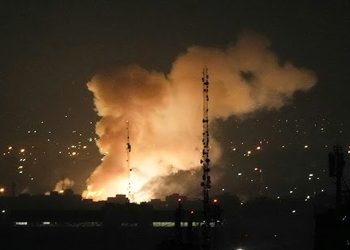Taliban authorities captured “key members” of the Islamic State group responsible for recent deadly attacks across Afghanistan, a spokesman said on Monday, blaming neighbouring Pakistan for harbouring the organisation.
Security has generally improved since the Taliban surged back to power after winning their insurgency in 2021, however the regional chapter of the group, known as Islamic State Khorasan (IS-K), has emerged as the main challenge to their rule.
A sweeping security crackdown broadly quashed the number of domestic attacks but there was a string of shootings and bombings by IS-K this summer.
Taliban government spokesman Zabihullah Mujahid said “special forces” apprehended “key members of the insurgent group” which claimed a Kabul suicide bombing that killed six people this month.
He said the suicide attacker “infiltrated Afghanistan” from a training camp in Pakistan, while others arrested in a series of raids had also “recently returned” from there.
Mujahid said the crackdown has evicted the Sunni jihadist group from Afghanistan but they “have established new operational bases and training camps” in Pakistan.
“From these new bases, they continue to orchestrate attacks, both within Afghanistan and in other countries,” he said.
The comments are likely to further fray relations between Kabul and Islamabad, which have suffered since the Afghan Taliban’s return.
Islamabad blames Afghanistan for rising attacks on its territory, claiming that the Taliban government is failing to put down insurgents from the Pakistani Taliban based there.
Pakistan’s foreign ministry did not respond immediately to a request for comment on Mujahid’s statement.
Pakistan, China, Iran and Russia issued a statement last week on the sidelines of the UN General Assembly which “expressed deep concern over the terrorism-related security situation in Afghanistan”.
It named several groups, including Islamic State, which it said were “based in Afghanistan” and “continue to pose a serious threat to regional and global security”.












![This handout photo released by the IRGC’s official Sepah News Telegram channel shows smoke billowing from a site bombed by Israel in Tehran early on June 13, 2025 [Sepah News/AFP]](https://mmnews.tv/wp-content/uploads/2025/06/Israel-attack-on-Iran-1-350x250.jpg)



















